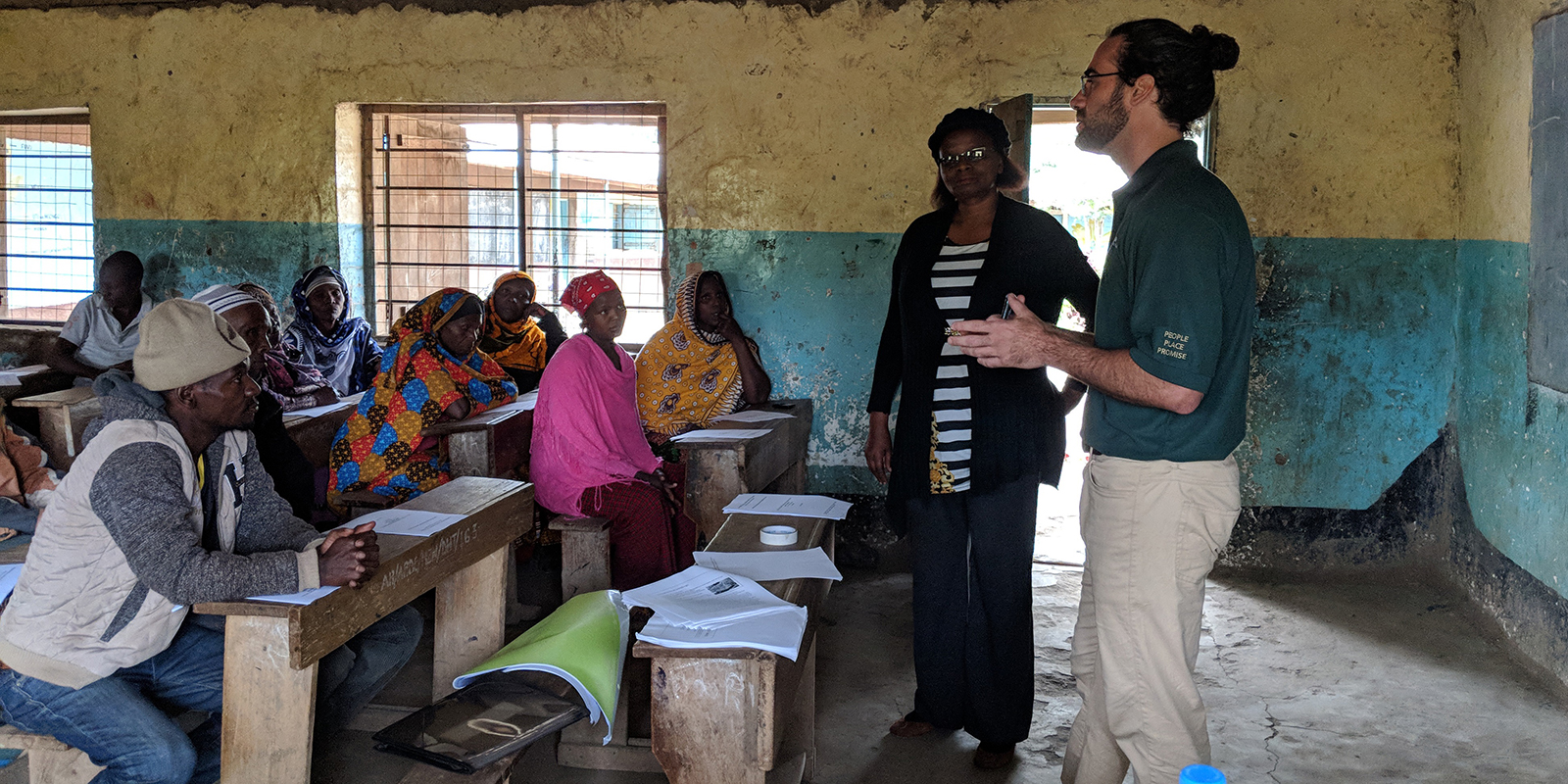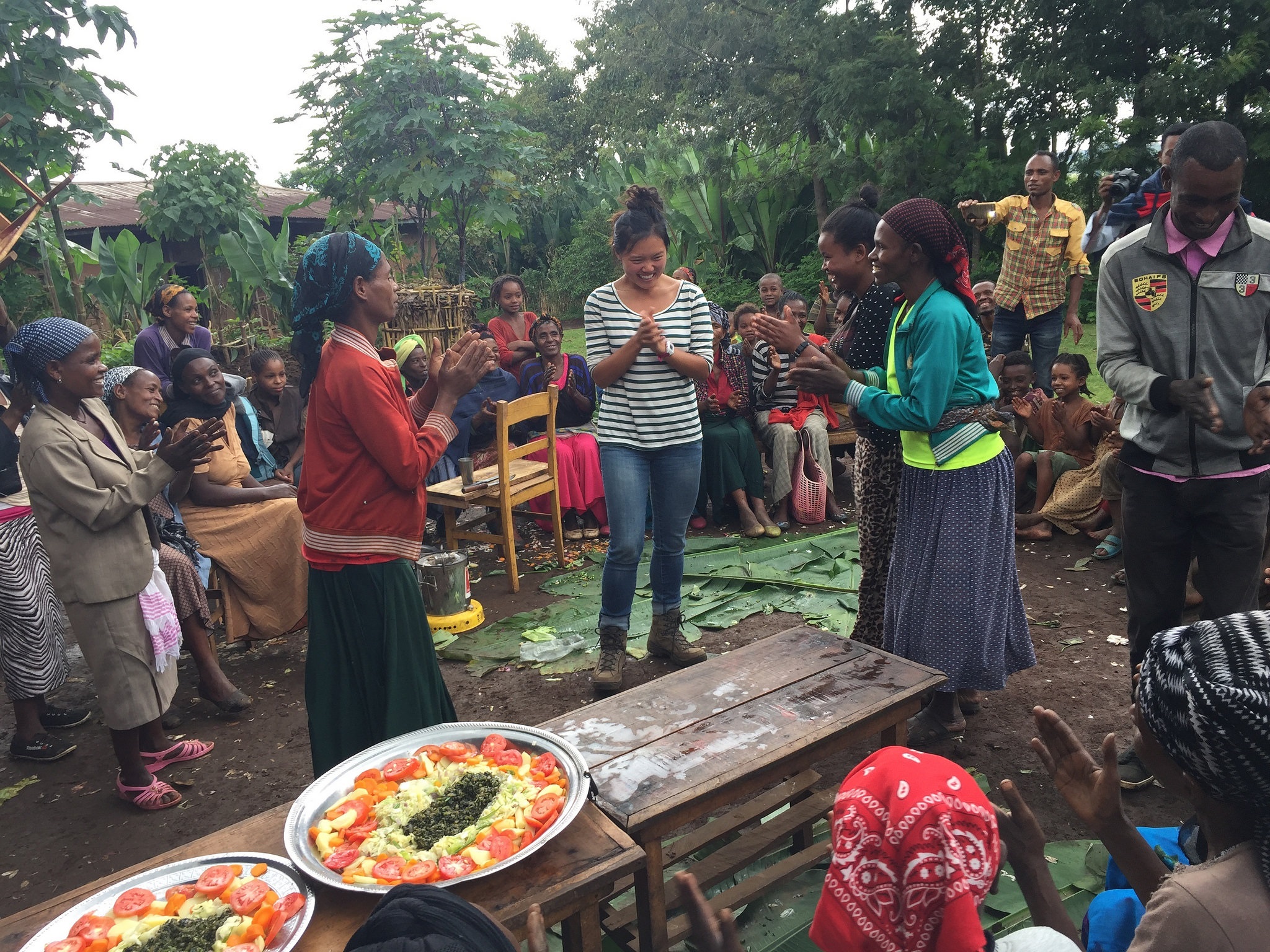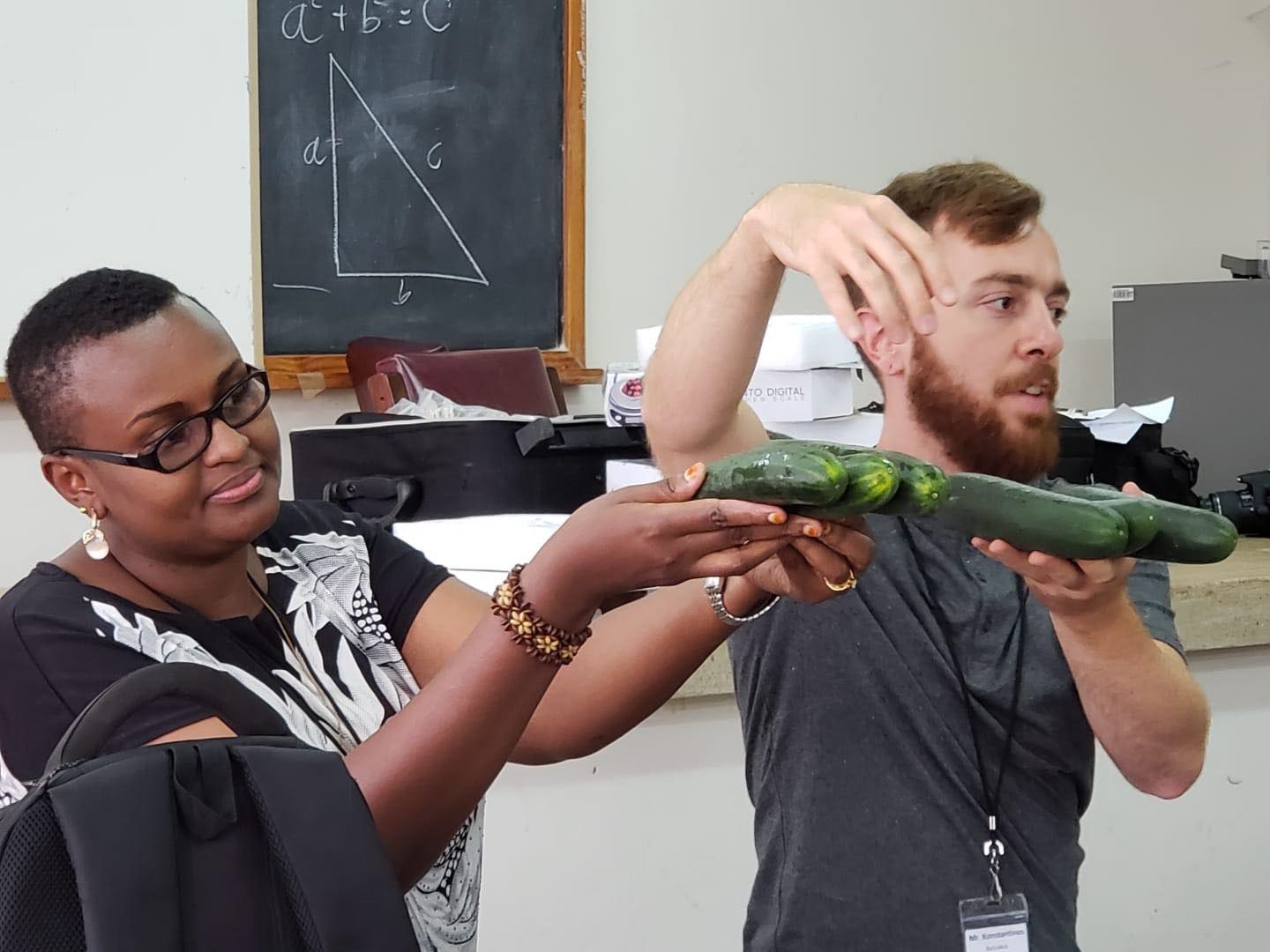
Horticulture Innovation Lab students recognized in Agrilinks Young Scholar Blog Contest
This fall the Agrilinks website held a young scholar blog contest to draw attention to the digital, first-hand stories of the next generation of global food security researchers. Plucked out of a sea of provoking narratives, blog posts penned by three students from the Horticulture Innovation Lab’s network were honored in the competition:
- Lauren Howe, a UC Davis student pursuing a master's degree in international agriculture development, was named the competition's winner.
- Konstantinos Batziakas, a Kansas State University student pursuing a Ph.D. in horticulture with a focus on postharvest physiology, was honored as one of ten finalists.
- Russell Galanti, a University of Hawai’i at Mānoa student pursuing a master's degree in soil science, was also honored as a finalist.
Thirty-nine students who hailed from five continents participated in the competition. Posts chronicled their international work and education — featuring personal reflections about age-old agricultural problems as well as promising new innovations. Entries were judged by a panel from Feed the Future, USAID's Bureau for Food Security and Agrilinks.

Cultivating community through sweet potato leaf taste tests
Lauren Howe, a UC Davis student studying international agricultural development who also manages the Horticulture Innovation Lab’s Trellis Fund, won the contest with a colorfully reported blog showcasing her work on a Trellis Fund project focused on sweet potato leaves for family nutrition. With project leadership by an organization called Send a Cow Ethiopia, Howe helped introduce sweet potato leaves to smallholder farmers through blind taste tests. Sweet potato leaves are a nutritious way that farmers can diversify their diets during the dry season in Ethiopia.
Howe was surprised by how easily farmers embraced the sweet potato leaves as a culinary ingredient. She writes:
This project is about creating tasty dishes to persuade people about the nutritional benefits of a new ingredient. It is gathering families, friends and neighbors to sit down to a communal meal (already a strong Ethiopian practice), breaking bread together, sharing stories, experiences and hopes for the future.
Read the rest of her contest-winning blog post: Building Community Around the Table: Sweet Potato Leaves for Improved Family Nutrition in Wolaita Sodo, Ethiopia. (After reading her blog post, watch the Horticulture Innovation Lab's 2-minute video with Howe's narration about how to cook sweet potato leaves.)

Training trainers while learning about Tanzania's postharvest challenges on the ground
Konstantinos Batziakas, who is pursuing a Ph.D. in horticulture with an emphasis in the postharvest physiology of fresh produce at Kansas State University, was named a finalist in the competition. He works on the Horticulture Innovation Lab project focused on building postharvest capacity in Tanzania. In August 2018, he co-led a train the trainer session for the project — teaching agricultural trainers about basic principles of postharvest handling, proper postharvest management practices and food safety practices. This experience served as his first introduction to Tanzania as well as the postharvest challenges which plague many developing countries. An estimated 44-60 percent of crops are lost at the postharvest stage in Tanzania.
In his blog post, Batziakas writes:
During this trip, I saw the urgent need to provide local farmers with the fundamentals of postharvest handling knowledge. The application of this knowledge will benefit their businesses, and in the bigger picture, will improve public health and contribute toward local food security. At the same time, infrastructure in Tanzania is nearly non-existent. The road conditions are poor, in many areas clean water and electricity are not readily available and farmers lack the capital to invest in technologies, such as proper packing material and cooling systems. This underlines the need to invest in infrastructure and technology and provide access to capital. While these issues are mostly beyond the jurisdiction of the postharvest scientist, we can still provide the farmers with low-cost, low-tech applications which are within their reach and meet their needs.
Read the rest of his Agrilinks blog post: Postharvest Science: A Key Element for Achieving Food Security

Soil scientist reports on his extension practices in Hawaii and Tanzania
Russell Galanti, another finalist, is a master’s student in the Department of Tropical Plant and Soil Sciences at the University of Hawaii at Mānoa. He is a Trellis Fund fellow who worked with Horticultural Research and Training Institute in Tengeru (HORTI Tengeru) in Tanzania for a Trellis Fund project focused on mulching in vegetable production. In his blog post, he writes about agricultural extension practices and the importance of farmer collaboration for adoption of research-backed interventions. He writes that it is important to show farmers interventions that are cost-effective, communicate to them the positive impact of the interventions and learn what interventions they are already employing.
In his blog post, Galanti writes:
Soil management is often the most overlooked responsibility of a busy farmer yet one of the most influential for long-term farm productivity and environmental sustainability. This is a global issue that affects everyone from commercial macadamia farmers in Hawaii to subsistence farmers in Tanzania as well as the ecosystems in these regions. Tackling this issue requires farmer participation and buy-in.
Read the rest of his blog post: Research and Extension With a Focus on Farmer Collaborators
Students key to success of Horticulture Innovation Lab network
Now the Associate Director of the Horticulture Innovation Lab, Erin McGuire worked for the research program as a graduate student — and knows firsthand the value students bring to the Horticulture Innovation Lab.
“It is exciting to see a new generation of students excelling in this work,” McGuire said. “Students throughout the Horticulture Lab’s network are the pillars of the work that we do by providing thoughtful analysis and creative original materials for research pursuits. We do not have a single project that does not have a few great students behind it.”
The Horticulture Innovation Lab's global research network advances fruit and vegetable innovations, empowering smallholder farmers to earn more income while better nourishing their communities. Students participate in this global research network as assistants with the program's management team at UC Davis, as assistants with international research project teams, and via the program's Trellis Fund which pairs graduate students with organizations in developing countries for brief horticulture projects.
More:
- Lauren Howe's winning post on Agrilinks: Building Community Around the Table: Sweet Potato Leaves for Improved Family Nutrition in Wolaita Sodo, Ethiopia
- Konstantinos Batziakas finalist post on Agrilinks: Postharvest Science: A Key Element for Achieving Food Security
- Russell Galanti's finalist post on Agrilinks: Research and Extension With a Focus on Farmer Collaborators
- How the Trellis Fund connects grad students with international development organizations
